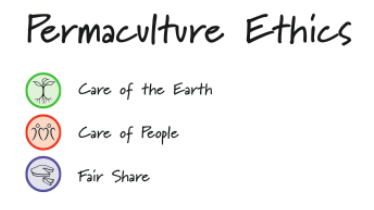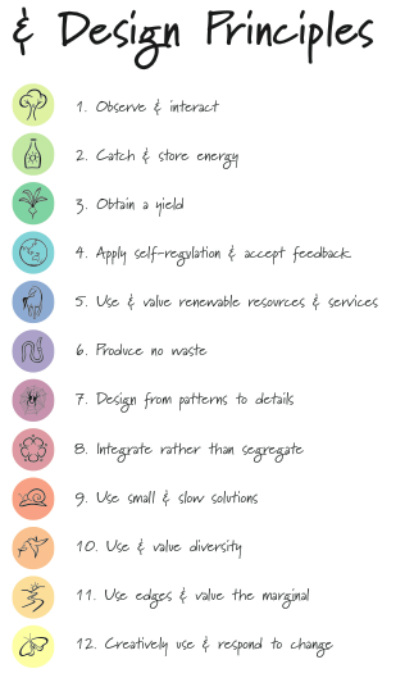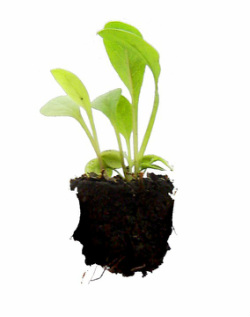ESPAÑOL
What is Permaculture?
The word 'permaculture' comes from 'permanent agriculture' and 'permanent culture'
- it is about living lightly on the planet, and making sure that we can
sustain human activities for many generations to come, in harmony with
nature. Permanence is not about everything staying the same. Its about
stability, about deepening soils and cleaner water, thriving communities
in self-reliant regions, biodiverse agriculture and social justice,
peace and abundance.
Permaculture combines three key aspects:
.1. an ethical framework
2. understandings of how nature works, and
3. a design approach
This unique combination is then used to support the creation of sustainable, agriculturally productive, non-polluting and healthy settlements. In many places this means adapting our existing settlements. In other cases it can mean starting from scratch. Both offer interesting challenges and opportunities**
Permaculture is a design system based on ethics and design principles which can be used to guide efforts made by individuals, households and communities towards a sustainable future.
Permaculture combines three key aspects:
.1. an ethical framework
2. understandings of how nature works, and
3. a design approach
This unique combination is then used to support the creation of sustainable, agriculturally productive, non-polluting and healthy settlements. In many places this means adapting our existing settlements. In other cases it can mean starting from scratch. Both offer interesting challenges and opportunities**
Permaculture is a design system based on ethics and design principles which can be used to guide efforts made by individuals, households and communities towards a sustainable future.
The Ethics

Central to permaculture are the three ethics: care for the earth, care for people and fair share. They form the foundation for permaculture design and are also found in most traditional societies.
Ethics are culturally evolved mechanisms that regulate self-interest, giving us a better understanding of good and bad outcomes. The greater the power of humans, the more critical ethics become for long-term cultural and biological survival.
Permaculture ethics are distilled from research into community ethics, learning from cultures that have existed in relative balance with their environment for much longer than more recent civilisations. This does not mean that we should ignore the great teachings of modern times, but in the transition to a sustainable future, we need to consider values and concepts outside the current social norm.
Ethics are culturally evolved mechanisms that regulate self-interest, giving us a better understanding of good and bad outcomes. The greater the power of humans, the more critical ethics become for long-term cultural and biological survival.
Permaculture ethics are distilled from research into community ethics, learning from cultures that have existed in relative balance with their environment for much longer than more recent civilisations. This does not mean that we should ignore the great teachings of modern times, but in the transition to a sustainable future, we need to consider values and concepts outside the current social norm.
The Principles

The 12 permaculture design principles are thinking tools, that when used together, allow us to creatively re-design our environment and our behaviour in a world of less energy and resources.
These principles are seen as universal, although the methods used to express them will vary greatly according to the place and situation. They are applicable to our personal, economic, social and political reorganisation as illustrated in the permaculture flower.
The ethical foundation of permaculture (centre) guides the use of these design tools, ensuring that they are used in appropriate ways.
Each principle can be thought of as a door that opens into whole systems thinking, providing a different perspective that can be understood at varying levels of depth and application.
Read more about how design principles can be applied to business, by Rob Hopkins.
Download a free poster of the principles to spread the word.*
These principles are seen as universal, although the methods used to express them will vary greatly according to the place and situation. They are applicable to our personal, economic, social and political reorganisation as illustrated in the permaculture flower.
The ethical foundation of permaculture (centre) guides the use of these design tools, ensuring that they are used in appropriate ways.
Each principle can be thought of as a door that opens into whole systems thinking, providing a different perspective that can be understood at varying levels of depth and application.
Read more about how design principles can be applied to business, by Rob Hopkins.
Download a free poster of the principles to spread the word.*

